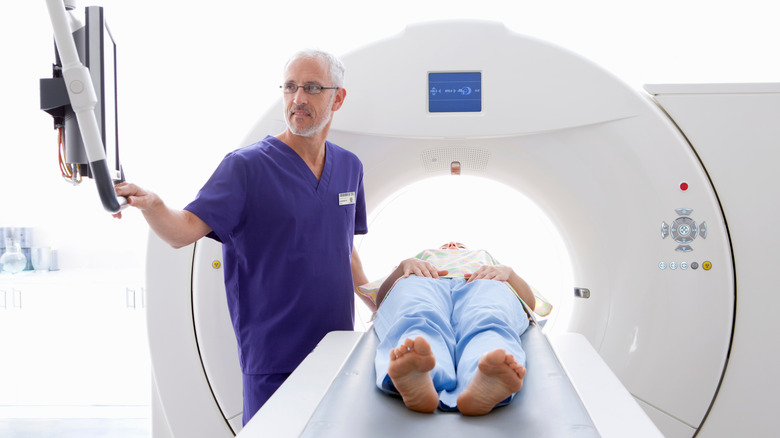Why You Should Think About Getting A Calcium Test
If you are between the ages of 40 and 70 with a family history of heart disease, or if you have ever been a smoker, are overweight, or have had a history of high cholesterol, high blood pressure or diabetes, Cleveland Clinic recommends that you consider getting a calcium test.
A calcium score screening heart scan is a computerized tomography (CT) scan that detect calcium deposits in your coronary arteries. The higher your coronary calcium score, the more likely you are at risk for a heart attack, due to a higher chance that you will experience significant narrowing of your coronary arteries.
To get a calcium score scan, your primary doctor or cardiologist will order the test. The CT scan uses x-rays, which have only low levels of radiation. However, if you are pregnant, you should hold off on getting the scan.
While Cleveland Clinic recommends that people with certain health predispositions should get the calcium scan, they also point out that, as this is a screening exam, it is not going to be covered by most health insurance plans.
Other reasons to get a calcium test
According to University of Michigan Health, there are a host of reasons why calcium tests can be helpful in more comprehensive ways when it comes to your health.
For instance, the results of the scan can be preemptive, prompting you to make lifestyle changes, such as exercising more, eating a healthier diet, quitting smoking and losing weight. These adjustments not only improve your heart health, but can have a positive impact on your overall health as well. Based on the results of the scan, you may also decide it's an appropriate time to begin taking medicine for cholesterol or high blood pressure.
The results of the calcium scan will also give your healthcare provider more information about your risk for heart disease. Depending on the results, your doctor may advise new or different treatments.
While there are benefits to having the scan, University of Michigan Health also points out, however, that it is important to remember that the test results may not always provide clear direction. For instance, you could end up with a high score even when you show no signs of heart disease, which could lead to more unnecessary tests and treatments. Conversely, you could be in the early stages of heart disease, but your arteries do not show any signs of calcium, which would result in a low score.
Whether or not you choose to have a calcium scan, being armed with all the information you need will help you better understand what your choices are when you consult with your doctor.


